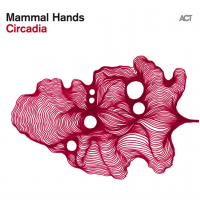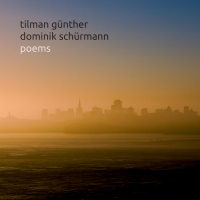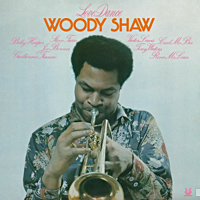Home » Jazz Articles » Album Review » Vlatko Stefanovski: Mother Tongue
Vlatko Stefanovski: Mother Tongue
Solo albums can be really a complicated effort as when separated from the surrounding musicians (who can act either as a comfort or as restraint) the musician can have a total freedom to compose or improvise. The ending results can vary and can range from well-crafted statements to absolute nonsense and self-indulgence. And on this recording, Stefanovski has produced something different in terms of sensibility. What emerges is an investigation of selfhood and across these 10 tracks, there is an attempt for Stefanovski to balance and synthesize the elements of his own musical identity. Mother Tongue is an intimate and hushed affair, much in the manner of Pat Metheny's own One Quiet Night. But even though these two records share many traits and moods still this feels more like intimate aural love letters to close ones.
Mother Tongue is an exceptionally sensitive and beautiful recording and on this record, he exudes a quiet introspection even when he is playing Macedonian reels which are usually dynamic, playful, boastful and intricate. The prevailing mood on these tracks is of serenity and evocation. These songs, most of which Vlatko has already interpreted in various other settings are intricate but never showy. Apart from the post-mastering process which was done by producer Mite Dimovski, the whole record was recorded, mixed, edited and produced by Stefanovski and he sounds like a small orchestra.
What this record also showcases is his ability to take a piece of music and interpret it so differently each time regardless if the context is spare and sketchy. Stefanovski comes from that lineage of musicians that follow the concept where any music can provide an endless platform for further exploration. His background is equally in jazz-rock and Macedonian folk music and there is a certain boastfulness and edginess to his playing even when he is playing acoustic music. He is primarily a rock guitarist and he plays the acoustic the way he plays the electric which is best heard and seen on his duets with guitarist Miroslav Tadic. The acoustic performances on the duet with Tadic are perfect examples where he is nearly boundless in his ability to approach, stretch, and reinvent traditional song forms with great taste, fierceness, and tenderness. Stefanovski's boundless ability and grist for exploration are in evidence here as well but with more emphasis on moods and seclusion. On these songs, he is showing an equal fascination with swirling, intricate melodies and the pure beauty of a single note that is hit just right.
Stefanovski's improvisational prowess comes to the fore but always in the service of the music and he reaches a new and different level in his ability to blur the line between form and freedom. "Bistra Voda" (Crystal Clear Water) is a gem of a song and one of Stefanovski's best known and loved compositions dating from his days with the band "Leb i Sol." It's a sad and mournful melodic piece that radiates with unmistakably characteristic Macedonian melancholy. It's a song that he devoted to his mother, Nada Stefanovska, an actress and whose picture adorns the front cover of this album. It's a photograph taken in the 1940s while acting in a play and she is holding a guitar. Stefanovski's approach to this classic has turned it into a highly textured and cinematic tune that moves across various soundscapes that could only be created on a guitar. The way he has structured the melodies and accompanying chords it sounds like a series of sonic moods that progress in waves. But what he does in his improvisations is striking. His own playing, with its fluent phrasing has risen to a such a level that he is virtually in a league of his own.
There is another tribute on this record with "Zošto si me Majko Rodila" (Why Did You Give Birth to Me Mother) to the recently deceased Esma Redžepova, the Queen of Gypsy song and her late husband Stevo Teodosievski. This is a beautiful and poignant rendition of this bittersweet song. The melody is paced by strummed sections that accentuate its bittersweet feel.
Some of these songs were already part of Stefanovski's repertoire and were recorded previously in other settings either with the Trio or the duo with Tadic. Songs like "Jano Mori," (Oh You Yana) "More Sokol Pie" (Behold a Falcon is Drinking Water) and the reel "Kasapsko Oro" (The Butcher's Dance) were previously recorded as part of the famed duo with Tadic over the course of several of their recordings but the versions here have a pronounced elegiac feel to them. "More Sokol Pie" also features Croatian actor Rade Šerbedžija on vocals whose broken voice adds additional mournful feel to it. This song was the theme song in a WWII feature film "The Third Half" (2012) that Šerbedžija has starred in. As a singer, he has been regularly singing Macedonian traditional songs in his repertoire and he sings it with a certain abandon.
"Uspavanka za Radmilu M" is a Goran Bregovic track dating from the early '80s when he was still fronting his band Bijelo Dugme and Stefanovski originally played on this wonderful instrumental track. This track was rarely performed live by Stefanovski but prior to this album's release went on tour with the Slovenian Army Big Band Orchestra and during the solo spots he performed this tune unaccompanied. This track has proven as an ideal vehicle for the delicate motivic development. While Bregovic's beautiful melody and harmonies are mostly left intact, the guitarist plays his variations and improvisations in a way that evolve this song in unexpected ways. As on the other songs, it provides a platform for evolving improvisations that are so lyrical that are leading astray far from the original composition.
Each song is a small gem. On all of these songs, there is an occasional spoken rhythic intro, a percussion on the body of the guitar and an overdubbed second guitar to achieve his atmospheric layers of harmony. As a result, his guitar sounds like a gorgeous thing, a resonating font of profundity. Yet the melodic warmth is always embraced regardless of pace and dynamics. What is unique about Stefanovski is his ability to make music that can both communicate and provoke emotional responses while retaining his complex guitar lines. "Makedonsko devojče" (Macedonian Girl) is another timeless classic. While widely considered a folk song from the pool of popular folk classics the author is Jonče Hristovski and Stefanovski has already recorded a solo version of this song, apart from live renditions with his electric Trio, for a compilation titled "Macedonia Forever: Old Macedonian Folk Songs" (2008). But that version while attaining its memorable melody also featured electronics. This version is more in line with the prevailing mood on the record where every note is given a sense of lonely importance. It is an elegiac song, and he is playing it with a moving tenderness.
The release of this album by the Croatian label "Croatia Records" coincided with Stefanovski's lifetime award for his achievements in culture and arts—"11th of October" one of the highest state awards in Macedonia. Mother Tongue is a recording of exquisite sensitivity and nuance. It is deep yet vibrant, detailed yet inviting. All throughout he humbly proves why his playing was so influential for generations of listeners and musicians—it is steered by technique but it's powered by emotion. During the course of four decades of making music Stefanovski has always followed his impulses that have led to magnificent achievements and some misfires, but on this recording, he has laid his soul bare more than on any other previous albums and as a result, he has created another masterpiece.
Personnel
Vlatko Stefanovski
guitarVlatko Stefanovski: guitar
Album information
Title: Mother Tongue | Year Released: 2017 | Record Label: Croatia Records
Tags
PREVIOUS / NEXT
Support All About Jazz
 All About Jazz has been a pillar of jazz since 1995, championing it as an art form and, more importantly, supporting the musicians who make it. Our enduring commitment has made "AAJ" one of the most culturally important websites of its kind, read by hundreds of thousands of fans, musicians and industry figures every month.
All About Jazz has been a pillar of jazz since 1995, championing it as an art form and, more importantly, supporting the musicians who make it. Our enduring commitment has made "AAJ" one of the most culturally important websites of its kind, read by hundreds of thousands of fans, musicians and industry figures every month.





















